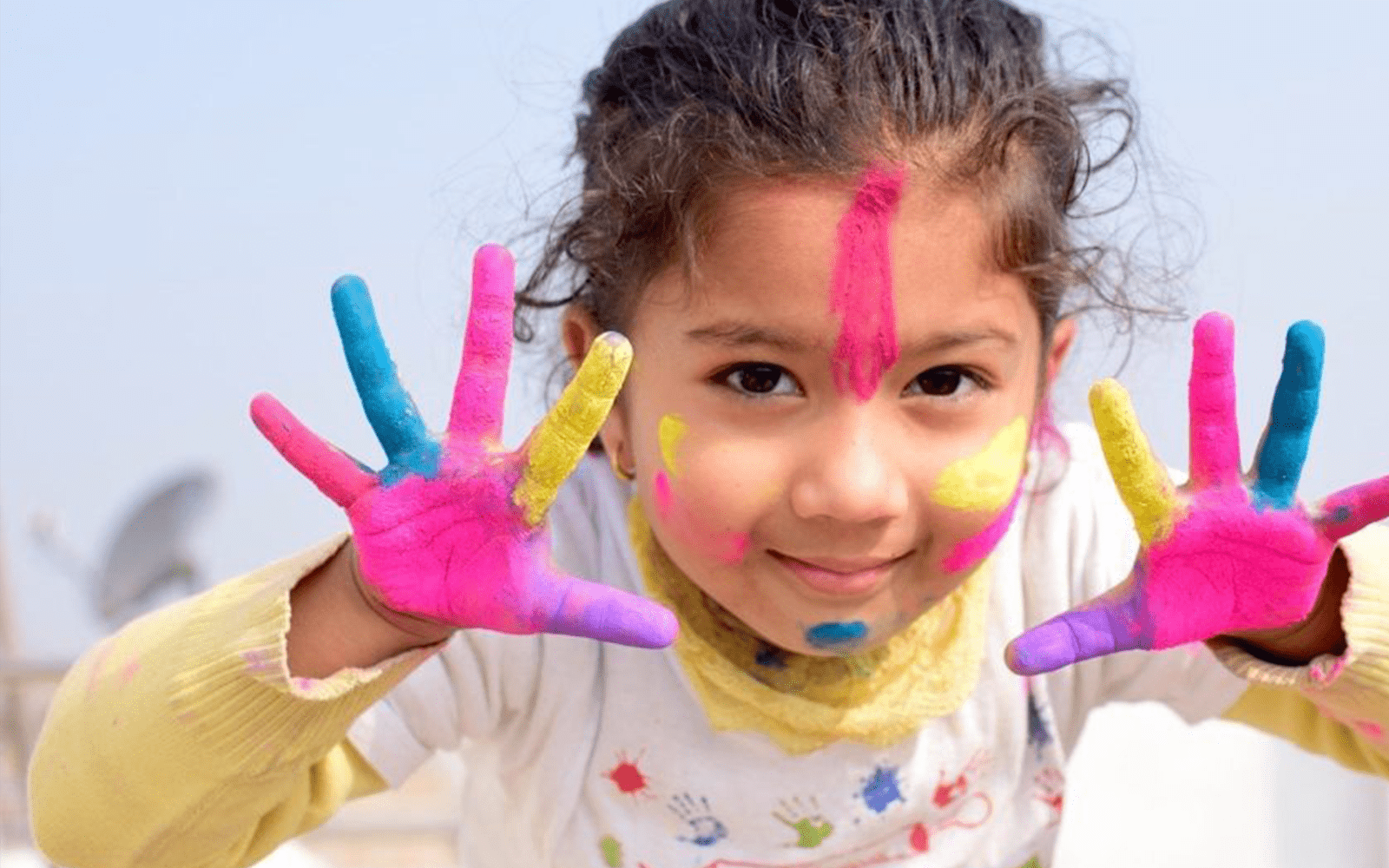Don’t underestimate the incredible thinking skills that young children have. Through this activity, your toddler will learn about the idea of perspective by using everyday objects and comparing their sizes.

Comparing Sizes With Handprints
Help your toddler understand the concept of bigger and smaller with this STEM activity.
Stay Connected
Sign up to receive news, helpful tools and learn about how you can help our youngest learners.
Materials Needed:
- Paper (can be a newspaper, magazines, paper bags, notebook paper, etc.)
- A pencil or other writing tool
- Tape (optional)
Developmental Goals:
- Understand the idea of larger and smaller.
- Increase the use of mathematical vocabulary such as larger than or smaller than.
- Support understanding of ordering objects by size (smallest to largest or largest to smallest).
In the Future:
- The ability to order objects by size will build the foundation for the understanding that numbers represent different amounts.
- Your toddler’s ability to compare two or more objects by size will build prior knowledge that will allow her to compare two or more objects by other factors (color, texture, speed, weight, etc) that will be useful in further math and science understanding.
- Understanding the concepts of bigger and smaller is a foundation skill for eventually understanding fractions and parts of a whole.
At-Home Activity:
- With your toddler, trace their hand (or foot). Also trace your hand and the hands (or feet) of any other family members, neighbors, or caregivers.
- Either tape the traced hands (feet) on the wall or lay them on the floor. Do so randomly at first.
- Ask your child to find a handprint that is the same size as theirs. Challenge them by asking, “I wonder if you can find a print that is larger/smaller than yours?” You can also ask them to choose a print that they think may be the same size/larger/smaller than yours or other members of the household.
- When your toddler is finished exploring the sizes of the prints, challenge them to line the prints up from smallest to largest or from biggest to smallest. As they do so, guide them by asking “I wonder how we can decide which print to start with?” or “I wonder which print should come next?” As your child works, don’t correct any “mistakes.” Rather, when they’re is finished, look at the order with them and ask if the prints look as though they are lined up from smallest to biggest. Encourage your child to compare each print to observe the different sizes.
More Like This
Take Action
Raise your voice and encourage lawmakers to prioritize early learning and care at the local, state and federal level.
Support Our Work
Together, when we start early, we can close the opportunity gap and ensure every child has a chance to reach their full potential.
Resources for Families
Discover educational activities and resources from Start Early experts to provide easy and engaging educational experiences with your child.

